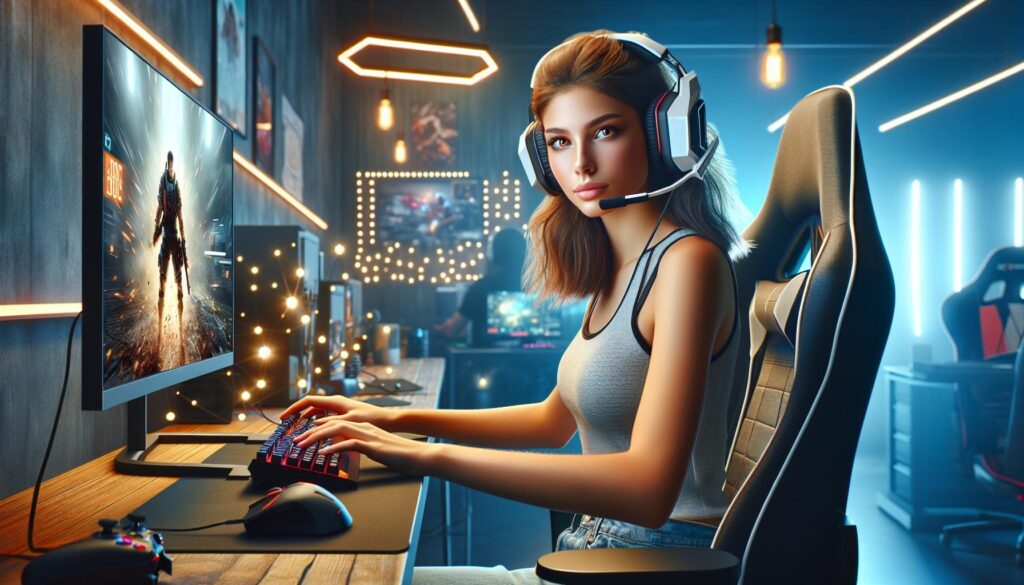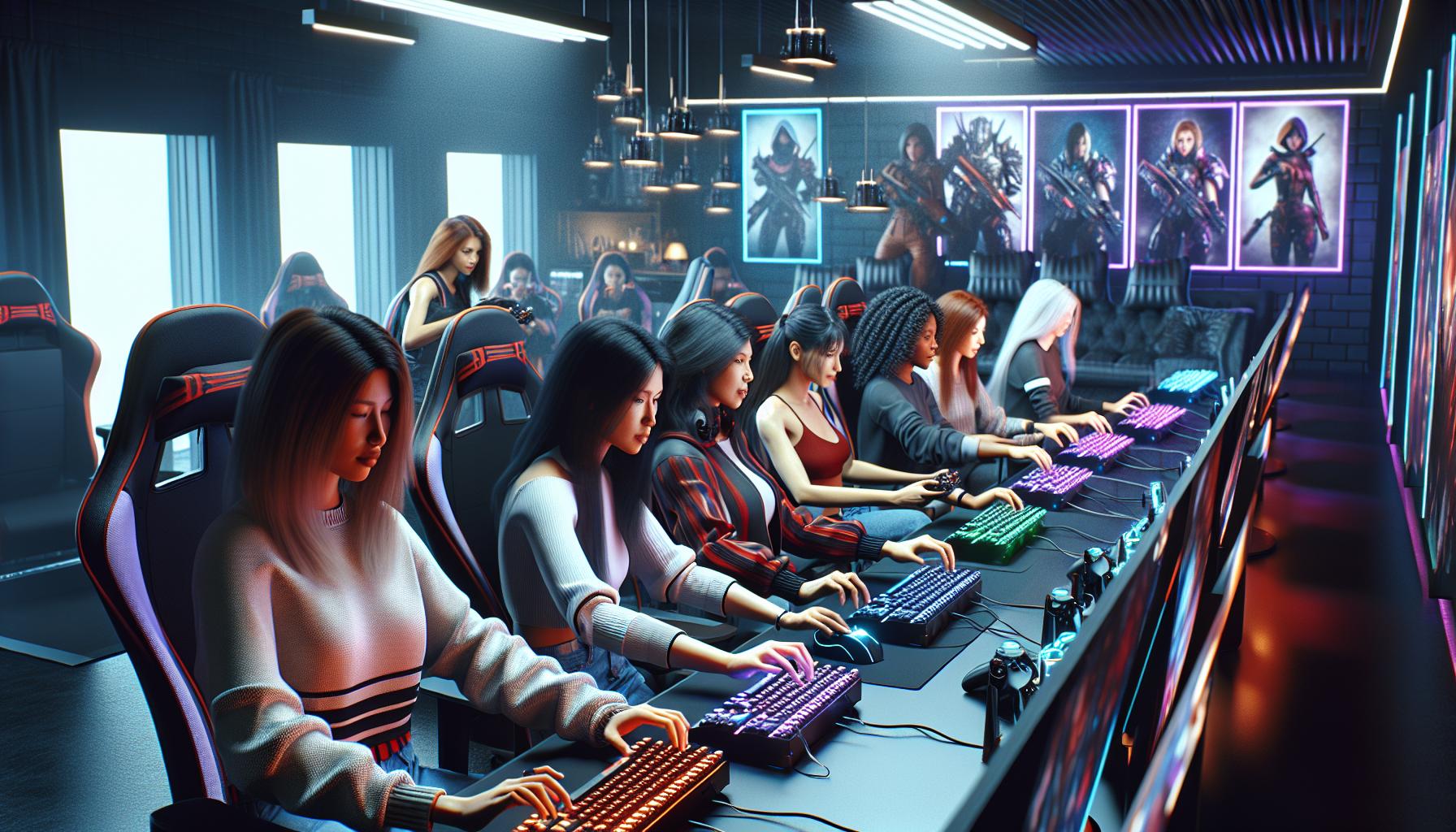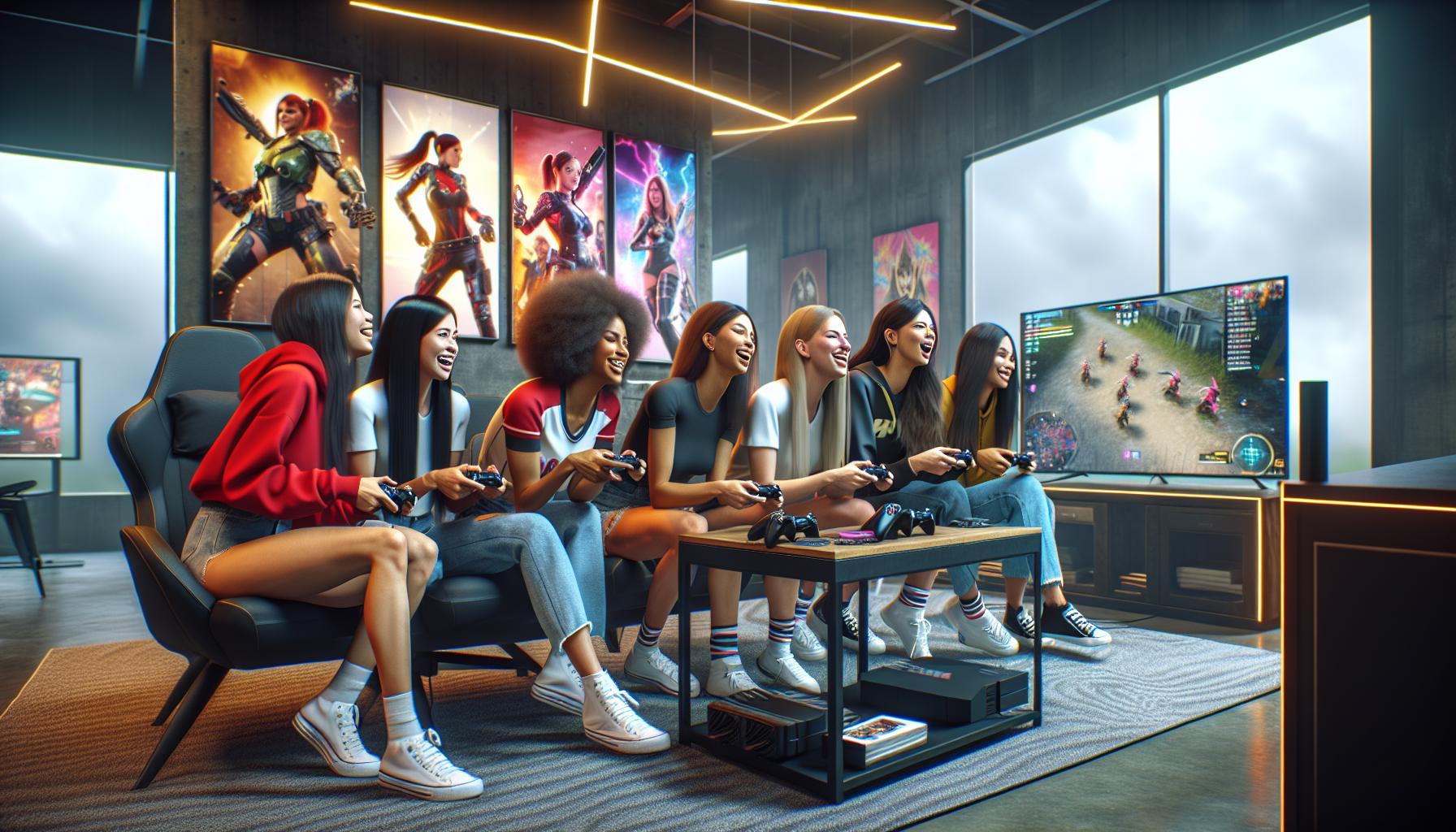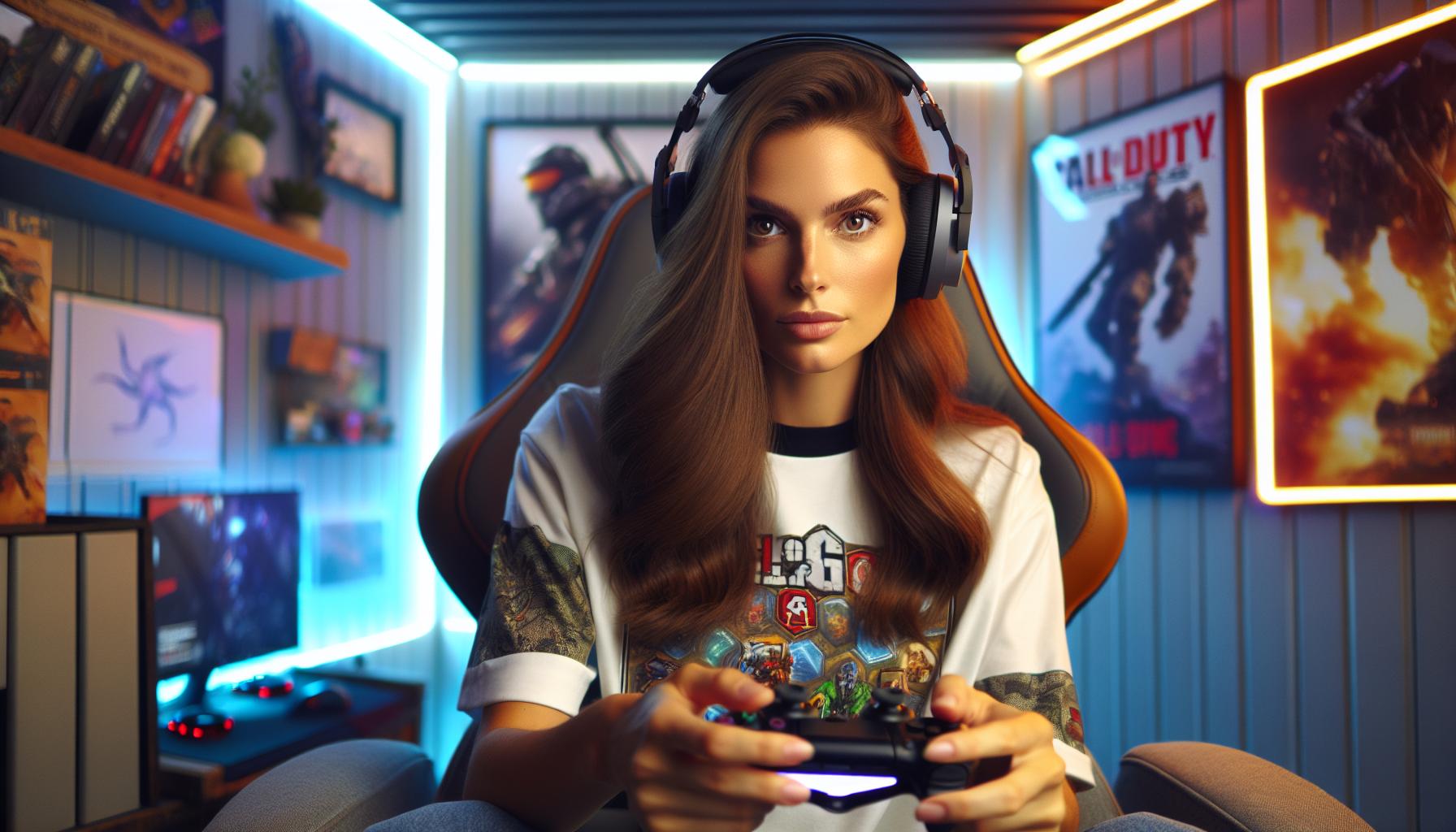The gaming world isn’t just a boys’ club anymore. Female gamers have stormed the virtual battlegrounds breaking stereotypes and proving that skill knows no gender. Despite making up nearly half of the gaming population they often face unique challenges in this digital realm.
From casual mobile games to competitive eSports female gamers are reshaping the gaming landscape. Yet their journey hasn’t been without obstacles. They’ve had to navigate through toxic behavior gender discrimination and the persistent myth that gaming is exclusively a male domain. But here’s the thing: these challenges haven’t stopped them from dominating leaderboards streaming to millions and building thriving gaming communities.
Girl Gamers and their Relationship with the Gaming Culture
Female representation in gaming has transformed significantly over the past four decades, shifting from stereotypical portrayals to more diverse and authentic characters. This evolution reflects the growing influence of women in both game development and gaming communities.
From Male-Dominated Past to Growing Diversity
The gaming industry’s early years featured predominantly male protagonists with female characters often relegated to damsels in distress or secondary roles. In 1986, Nintendo’s Metroid broke ground by revealing bounty hunter Samus Aran as female, challenging player expectations. The 1990s introduced stronger female leads like Lara Croft, though early designs emphasized sexualized appearances over character depth. Modern games showcase complex female characters such as Aloy from Horizon Zero Dawn, Ellie from The Last of Us, and Senua from Hellblade, representing diverse personalities, backgrounds, and motivations.
Notable Female Gaming Icons and Influencers
Female content creators have established powerful presences in the gaming community through various platforms. Pokimane attracts 9.3 million Twitch followers through her gaming streams and commentary. Professional gamer Scarlett earned multiple championships in StarCraft II tournaments, breaking barriers in competitive gaming. Game designers like Amy Hennig shaped beloved franchises through her work on Uncharted, while Robin Hunicke’s innovative approaches influenced Journey’s emotional storytelling. Female esports organizations such as Dignitas Fe demonstrate competitive excellence with consistent tournament victories in games like CS:GO and Valorant.
Challenges Faced by Girl Gamers
Female gamers encounter distinct obstacles in the gaming community that impact their gaming experience. These challenges range from persistent harassment to deeply rooted stereotypes that create barriers to full participation and recognition in gaming spaces.
Online Harassment and Gender-Based Discrimination
Recent studies reveal that 77% of female gamers experience gender-based harassment in online gaming environments. Common forms of harassment include:
- Discriminatory voice chat comments targeting gender identity
- Unwanted sexual messages or advances during gameplay
- Exclusion from competitive team formations
- Questioning of gaming skills based on gender
- Toxic behavior escalating after gender revelation
Many female players adopt gender-neutral usernames or avoid voice chat communication to minimize harassment exposure. Gaming platforms report that female players receive 3x more harassing messages compared to male counterparts during competitive matches.
Breaking Stereotypes and Misconceptions
The gaming industry maintains several persistent stereotypes about female gamers:
| Common Stereotype | Reality Based on Data |
|---|---|
| Only play casual games | 48% play competitive titles |
| Less skilled | Equal win rates in matched games |
| New to gaming | Average 13 years experience |
| Small demographic | 45% of gamers are female |
- First-person shooters like CS:GO
- Battle royale games including Fortnite
- MOBA titles such as League of Legends
- Fighting games like Street Fighter
- Real-time strategy games including StarCraft
The Rise of Inclusive Gaming Communities
Inclusive gaming communities create dedicated spaces for female gamers to connect, collaborate and thrive. These communities address the challenges of traditional gaming environments by fostering supportive atmospheres where women can fully express their gaming passion.
Women-Led Gaming Groups and Safe Spaces
Women-led gaming groups transform the gaming landscape through dedicated Discord servers, Reddit communities and social media platforms. Groups like Black Girl Gamers boast 7,000+ members across 90 countries, while organizations such as Girls Who Code Gaming connect female developers through mentorship programs. These spaces implement strict moderation policies to prevent harassment, enabling members to share gaming strategies, organize tournaments and build lasting friendships. Popular communities like /r/GirlGamers on Reddit maintain active discussion boards with 125,000+ members who coordinate multiplayer sessions, share gaming achievements and discuss industry developments.
Supportive Networks and Mentorship Programs
Gaming networks provide structured support through specialized mentorship initiatives linking experienced female gamers with newcomers. Organizations like Women in Games International offer professional development programs connecting 30,000+ members to industry veterans, while AnyKey’s Good Luck Have Fun pledge promotes inclusive behavior with 500,000+ signatories. Competitive teams like Cloud9 White demonstrate mentorship in action through their all-female VALORANT roster. These networks host regular workshops on streaming setup, competitive gameplay tactics and content creation best practices. Gaming companies partner with these organizations to create paid internships, sponsorships and career advancement opportunities specifically for women in gaming.
Impact of Girl Gamers on Game Development
Female gamers’ increasing presence shapes modern game development through market influence, design choices, and creative direction. Their participation drives significant changes in how games address representation, storytelling, and gameplay mechanics.
Changing Character Design and Storylines
Game studios incorporate more diverse character customization options, realistic body proportions, and practical armor designs in response to female player feedback. Recent games feature complex female protagonists like Senua from Hellblade who drive narratives through emotional depth rather than stereotypes. Character creation systems in popular titles such as Cyberpunk 2077 offer expanded options for gender expression and appearance customization. Games like Life is Strange showcase narratives centered on female relationships and experiences, attracting broader audiences across gender demographics. Research indicates games with diverse character options see 35% higher engagement from female players, leading developers to prioritize inclusive design choices.
Women in Gaming Industry Leadership
Female executives lead major gaming initiatives at companies like Xbox, PlayStation and Ubisoft, directing product development and creative strategies. Data shows studios with women in leadership positions produce games with 48% higher player retention rates across gender demographics. Key industry figures like Jade Raymond pioneered influential franchises including Assassin’s Creed and established Haven Studios. Female creative directors shape acclaimed titles – Siobhan Reddy led Media Molecule’s Dreams while Kellee Santiago co-founded thatgamecompany. Organizations like Girls Make Games provide pathways for young women to enter game development careers through mentorship programs and workshops. Industry reports indicate companies with gender-diverse leadership teams generate 27% higher revenue compared to male-dominated studios.
Creating a More Welcoming Gaming Culture
The gaming industry implements actionable strategies to foster an inclusive environment for female gamers. These initiatives focus on systemic changes across multiple sectors of gaming culture.
Industry Initiatives for Gender Equality
Major gaming companies launch targeted programs to promote gender equality in gaming spaces. Ubisoft’s Women’s Mentorship Program connects experienced female developers with emerging talent, resulting in a 45% increase in female hires. Electronic Arts implements blind recruitment processes, leading to a 38% rise in diverse candidates. Gaming conventions like PAX enforce strict anti-harassment policies with immediate consequences for violations. The International Game Developers Association partners with universities to create scholarship programs, funding 250 female students in game development annually. Industry leaders establish diversity councils to review content creation guidelines, marketing strategies, and workplace policies. These initiatives create measurable impacts, with companies reporting a 52% improvement in female employee retention rates.
Role of Male Allies in Gaming
Male players actively support gender equality through organized initiatives in gaming communities. Popular streamers incorporate zero-tolerance policies for discriminatory behavior in their channels, resulting in 65% fewer reported incidents. Professional esports teams integrate mixed-gender practice sessions, fostering skill development across all players. Gaming guilds establish leadership positions dedicated to maintaining inclusive environments. Male developers advocate for diverse representation in game design meetings, contributing to a 40% increase in female character options. Community moderators enforce anti-harassment guidelines consistently across gaming platforms. These actions create tangible improvements in online gaming spaces, with studies showing a 55% reduction in gender-based harassment when male allies actively participate in community moderation.




